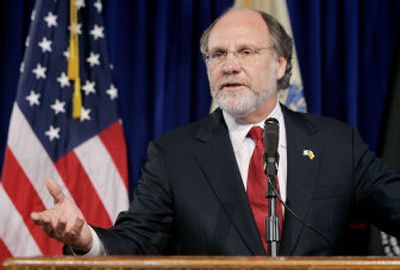State shutdown leaves gambling tables quiet

ATLANTIC CITY, N.J. – The dice stopped rolling, dealers quit shuffling and slot machines fell silent Wednesday as New Jersey’s casinos closed for the first time, the latest victims of a five-day state government shutdown that showed no signs of ending soon.
In the first mass closure in the 28-year history of Atlantic City’s legalized gambling trade, all 12 casinos went dark. With no state budget, New Jersey cannot pay its state employees, including casino inspectors who keep tabs on the money.
“I never thought this would happen,” said 77-year-old Ruth Dodies of Philadelphia as she stood outside a closed entrance to Trump Plaza Hotel and Casino. “It doesn’t make sense. It really doesn’t.”
The shutdown could cost the 12 casinos more than $16 million that they would normally collect from gamblers each day, not to mention the $1.3 million in taxes taken in by the state.
The shutdown left boardwalk casinos eerily quiet. Once all the gamblers were out, there was no ringing of slot machine bells, no clinking of coins in their hoppers, no craps players calling out for luck as they rolled the dice.
The casino-hotel’s lobbies were conspicuously empty, too, as buses picked up gamblers to return them home but did not drop off new ones.
“There’s no business coming in. It’s all going out,” said Joseph Lowry, a cocktail server at Tropicana Casino and Resort.
The calm was in stark contrast to the usual scene in this vibrant, open-all-night city, which was rescued from oblivion in the 1970s when city fathers turned to casino gambling in a last-ditch effort to revive the place once known as “the Queen of Resorts.”
Since the first casino opened on May 26, 1978, the gambling business here has blossomed into a $5 billion-a-year juggernaut, with a dozen casinos employing 46,000 people. In the process, gambling breathed new life into Atlantic City, providing jobs and fueling the growth of hundreds of small businesses, from florists to limousine services to linen-supply companies.
The closures forced an estimated 20,000 people off their jobs as dealers, pit bosses and cocktail servers.
“No one wants to see people lose their jobs. We hope this gets resolved as quickly as possible,” said Linda Kassekert, chairwoman of the state Casino Control Commission.
The problem started when the Legislature became locked in a battle with Democratic Gov. Jon S. Corzine over his proposed sales tax increase. Lawmakers missed a July 1 deadline to pass a budget.
Without a spending plan, Corzine ordered state offices shut down Saturday and all nonessential state government operations closed. He furloughed more than half the state’s employees. Only about 36,000 people in vital roles such as child welfare, state police and mental hospitals remained on the job, and they were working without pay.
Corzine wants to raise the state sales tax from 6 percent to 7 percent to close a $4.5 billion state budget gap. Democrats who control the state Assembly oppose the tax increase, estimated to cost the average New Jersey family $275 per year.